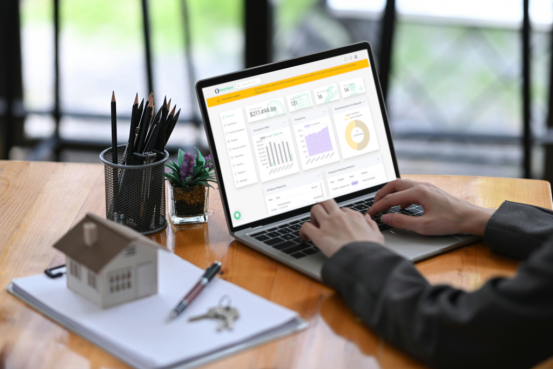Property Management Software: Essential Features, Pricing, and Selection Tips
Property management software (PMS) refers to applications businesses use to oversee daily tasks such as scheduling, organizing operations, managing occupancy, handling accounts, and more. These tools have grown popular as companies aim to shift from manual, error-prone multitasking toward automated tracking, usage, and task coordination.
Property management software (PMS) refers to applications businesses use to oversee daily tasks such as scheduling, organizing operations, managing occupancy, handling accounts, and more. These tools have grown popular as companies aim to shift from manual, error-prone multitasking toward automated tracking, usage, and task coordination.

The top property management software solutions function as centralized online platforms designed to automate workflows and enhance operational efficiency.
Tips for Selecting the Ideal Property Management Software
To choose the software that perfectly fits their needs, businesses should consider several key factors.
Identify Your Needs
Before investing in property management software, companies must clearly define their specific requirements. Important questions include whether the software needs to handle rent and lease management, financial accounting, maintenance tracking, or other tasks. It’s also critical to determine whether the business manages residential or commercial properties, and to assess scalability expectations. Once these needs are identified, companies can confidently select software that aligns with their operational goals.
Evaluate Data Security and Privacy
A primary reason organizations adopt property management software is to protect sensitive data. The level of security offered by these tools far exceeds what manual handling by staff can provide. Managing property involves dealing with confidential information such as maintenance logs, financial details, and tenant records. Effective software solutions must include strong encryption, routine backups to prevent data loss, multi-factor authentication, and context-aware security controls to safeguard business and client information. Leading PMS tools deliver advanced protections and controlled access to sensitive data.
Consider Invoice Generation and Payment Collection Efficiency
Especially in the hospitality sector, where hotels and lodges serve numerous clients daily, manually handling billing, verifying information, and generating invoices can overwhelm staff, leading to errors and delays. Property management software simplifies these processes, ensuring quick and accurate billing. When evaluating options, businesses should prioritize solutions with user-friendly interfaces that streamline invoice creation and payment collection. Complex or cumbersome controls may hinder efficiency and should be avoided.
Prioritize Easy Implementation and Usability
Businesses prefer software that can be rapidly deployed and fully integrated with existing systems. Lengthy installation or complicated setups are costly and disruptive. The ideal PMS features an intuitive user interface accessible to front-desk personnel, housekeeping, and other teams. A smooth operational experience contributes significantly to enhanced productivity.
Key Features of Property Management Software
Property management tools offer a broad range of functionalities applicable across various sectors.
Rental Payment Management
These tools provide efficient tracking of rent collections and due payments, allowing property managers and owners to stay updated on receivables and payables.
Customer Service Enhancement
PMS platforms assist businesses in managing important dates such as lease renewals and rent deadlines, supporting improved tenant communications and relations.
Accounting and Bookkeeping
Financial management is simplified through accurate record keeping, ledger creation, balance sheet calculations, and related accounting tasks.
Typical Costs of Commercial Property Management Software
Developing a custom property management solution generally ranges from $40,000 to $250,000, though additional expenses may apply. The total cost depends on factors such as user interface and experience design, included features, underlying technology, and the geographic location of the software development provider.
Leading Property Management Software Tools
Popular tools widely adopted in the industry include Rent Manager, Guesty, Rentec Direct, PayHOA, TenantCloud, and Buildium. These platforms support a variety of operations, including short-term rental management, rent collection, tenant database maintenance, and overall property upkeep.

